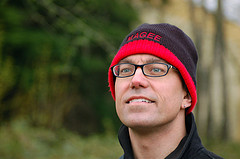PodCamp Montreal This Weekend
(This has been cross-posted from my marketing blog. I spoke about Digital Legacy for the very first time at PodCamp Montreal in 2009. If you can make it to Montreal this weekend, I’d love to see you at my session.)
Despite not being a podcaster (yet), I love attending podcamps. This weekend is the third edition of PodCamp Montreal and the first time at UQAM’s Coeur des sciences. (It’s also my seventh PodCamp!)
Once again, I am looking forward to a weekend full of tech, social media and great discussions around digital communications and community. There will be 3 tracks of presentations this year; 2 in French, 1 in English.
I’m privileged to be speaking once again. I’ll be presenting a session that is specifically targeted to digital content creators, and is part of my digital legacy series:
Your Web Content : Forever or Fragile?
In the last 15 years we’ve converted analog to digital and put everything on the Web and told that it will be there forever. What if we’re wrong?
Sunday, September 12, 2010
9:30 AM
Chaufferie (hidden away at 175, avenue du Président-Kennedy)
Google Map
The full weekend schedule, including information about Friday’s first ever MediaCamp and the kick off party is here.
Can’t make it to PodCamp Montreal? Check the session schedule to see which sessions will be live streamed to the Internet. (Yes, mine will be.)
Thanks to the PodCamp organizing team Michelle Sullivan, Sylvain Grand’Maison, Laurent Lasalle and Laurent Maisonnave who have done a great job pulling this event together.
Dead People on Facebook Infographic
I came across this infographic today on AllFacebook.com. It cites Facebook as saying there will be 200,000 user deaths this year. This is significantly smaller than the 375,000 US-based deaths this year arrived at by Nathan Lustig of Entrustet.
Looking at the comments on this AllFacebook.com post, some people are clearly offended by this topic and the “flippant” tone of the infographic.
What do you think?
Avoiding Extinction in a Digital Dark Age
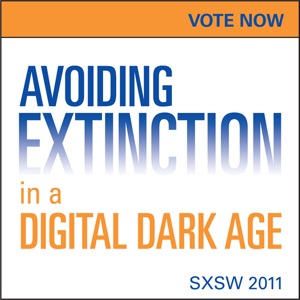 I’m excited that my panel submission has been accepted to the voting stage of the SXSW Interactive festival, happening March 11 – 15, 2011 in Austin, Texas. More than 2,400 proposals have been submitted for consideration. Please vote for my session from August 9 to 27 to help it through to the next round of consideration. And, if you feel so inclined, please leave a comment on my session’s Panel Picker page, as this may encourage others unfamiliar with me or my work to vote for my proposal.
I’m excited that my panel submission has been accepted to the voting stage of the SXSW Interactive festival, happening March 11 – 15, 2011 in Austin, Texas. More than 2,400 proposals have been submitted for consideration. Please vote for my session from August 9 to 27 to help it through to the next round of consideration. And, if you feel so inclined, please leave a comment on my session’s Panel Picker page, as this may encourage others unfamiliar with me or my work to vote for my proposal.
Avoiding Extinction in a Digital Dark Age evolved through speaking sessions that I’ve been doing over that the last year. It is particularly relevant to content creators and people who put so much of their work online. (Here’s Wikipedia about the possibility of a digital dark age.)
Avoiding Extinction in a Digital Dark Age
Here’s the session description:
Many think that the web is forever and our personal stories, work and files will live on stored on hard drives and online. Driven by low cost storage, easy distribution and social networks we’ve put our lives online at an amazing pace and converted analog to digital. But, are we inadvertently creating a digital dark age?
In the last 15-years, online photo and video sites, blogs, email and hard drives full of files have replaced the previous generation’s analog heirlooms.
Looking at an old family album from 1910, you’ll be able to view the photos today. Will your descendants be able to see your digital pictures 100 years from now?
The web is actually a fragile place where your digital life’s work and can disappear without warning. Stored data can suffer from digital obsolescence and become unusable.
To prevent the loss of historically significant records and collections, library and archival organizations have been working on digital preservation issues for years.
You may not be a person destined for the history books, but, to your family, friends, colleagues and descendants, your stories and work are just as important, and possibly even more relevant.
This session will look at what each of us can do today to preserve and pass on our digital legacy, how to determine what to save, what steps have happened at the institutional level and determine how they can be adapted for individuals.
If you are a prolific digital creator, this is a must attend session.
Five Questions Answered
- Why won’t my digital content be safe forever on the Internet?
- Isn’t the Internet Archive keeping everything?
- Why is the archive of files on my hard drive/CD/DVDs at risk?
- My data is insignificant. Why would anyone care about it in the future?
- How do I ensure that my important digital files survive me?
SXSW Voting
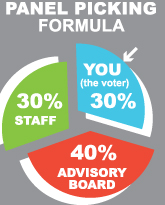 Here’s how the voting works:
Here’s how the voting works:
- 30% Community Voting (that’s YOU); 30% SXSW Staff Picks; 40% SXSW Advisory Board Picks
- Voting runs from August 9 to 27, 2010
- First 200 sessions are announced September 20, with more following on November 8
To vote:
- Before Friday, August 27, 2010 go to PanelPicker.sxsw.com a
- click “Sign In” at the top right of the page
- If you have never registered on SXSW.com before, click “create a new account” and fill out the simple form
- Once you are logged into the PanelPicker, you can click here to get to my session, or navigate alphabetically to Avoiding Extinction in a Digital Age to vote.
Thank you for your support. See you at SXSW Interactive 2011!
Twitter Posts Deceased Policy
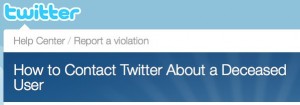 Twitter has released a deceased policy that will hopefully be a step toward removing dead users from their recommendation engine. From all indications the social network has not yet announced the policy which will help family and friends of loved ones to retrieve an archive of their tweets or remove the account.
Twitter has released a deceased policy that will hopefully be a step toward removing dead users from their recommendation engine. From all indications the social network has not yet announced the policy which will help family and friends of loved ones to retrieve an archive of their tweets or remove the account.
Twitter’s Deceased Policy
If we are notified that a Twitter user has passed away, we can remove their account or assist family members in saving a backup of their public Tweets.
Please contact us with the following information:
- Your full name, contact information (including email address), and your relationship to the deceased user.
- The username of the Twitter account, or a link to the profile page of the Twitter account.
- A link to a public obituary or news article.
You can contact us at privacy@twitter.com, or by mail or fax:
Twitter Inc.,
c/o: Trust & Safety
795
Folsom Street, Suite 600
San Francisco, CA 94107
Fax: 415-222-9958
We will respond by email with any additional information we might need.
Please note that we cannot allow access to the account or disclose other non-public information regarding the account.
Was it something I said?
A mere 72-hours ago I exchanged tweets with Doug Bowman, @stop, Twitter’s Creative Dirctor, about my post Twitter Recommends Dead Friends. He advised me that he would pass along the post to the support team overseeing the topic.
I don’t know if it was that post that finally made them take action on developing a policy or if it was already in the works and was sped along by the many complaints from their users about seeing dead friends recommended.
However this new policy came to be, I’m glad that Twitter now has something in place that will help family or friends of users who have passed away to archive the tweets or remove their accounts.
Twitter Recommends Dead Friends
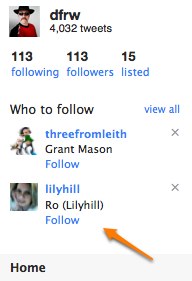 On July 30th, Twitter announced that it was releasing a feature to recommend friends to follow right on the sidebar of the site when you log into Twitter.com. It was only a matter of time before their Who to Follow algorithm turned up someone who had passed away.
On July 30th, Twitter announced that it was releasing a feature to recommend friends to follow right on the sidebar of the site when you log into Twitter.com. It was only a matter of time before their Who to Follow algorithm turned up someone who had passed away.
My friend Dean Whitbread, @dfrw, alerted me this morning that upon logging in and seeing this feature for the very first time, he was disturbed to see his friend Ro, @lilyhill, recommended as someone to follow. She had died unexpectedly of a stroke in May 2009. Two days later, Ro’s daughter used her mom’s cell phone to text a last message to the account to notify @lilyhill’s friends of her passing.
Facebook does it too
This same problem has been on Facebook since they rolled out their Suggested Friends feature in March 2008. And automated friend recommendations without the context of whether the person is alive or dead is the source of one of the most frequent complaints that I hear about Facebook.
However, in Facebook, users have the ability to report a user deceased and memorialize their account. A memorialized account removes some personal information, prevents new friend requests and still allows existing friends to post messages to the deceased’s Wall. It also removes the user’s account from the “Suggested Friends” algorithm so that your dearly departed does not appear there.
Twitter’s deceased policy
Twitter has no such ability to deal with the deceased’s account. In fact, Twitter has no policy regarding the death of a user at all. The closest they have is an inactive accounts policy which states “Accounts may be removed from the site due to prolonged inactivity,” which they consider to be six-months. The policy then goes on to say they’re working on a way to release these accounts in bulk, but that they have no time line for when this might happen.
The account of the first person I knew on Twitter to pass away, @mochant, in December of 2007, is still there, well past the six-months to be considered an inactive account on Twitter.
The human side of the equation
Speaking to Dean Whitbread this morning about his friend @lilyhill, he remarked “we felt like family.” After her death in May 2009, he wrote blog post about Ro as a way to acknowledge his grief and pay tribute to his friend whom he’d known online for 18- months.
A comment on that post left by @Otir, another of Ro’s online friends, talked about how she was grieving online.
“I am still feeling bereaved, probably because unlike if we were close blood family, I haven’t been actually able to pay my respects and attend her funeral or say goodbye in a proper way, I guess writing a tribute for a friend we met online is the proper way to do it.
I miss Ro a lot. She had become part of my daily life because we had often the same twitting hours and moments. Her absence is felt by this online silence that captures the exact essence of what death can be: silence.”
When we chatted this morning about seeing Ro in the Who to Follow box, Dean expressed how seeing her avatar there reminded him of the grief and loss he felt, and made him miss @lilyhill all over again. He summed up his feelings about the impact online friendships in his memorial blog post 15-months ago:
“It’s not just the convenience of messaging, adding a follower, the ubiquity of the internet – it is the meeting of minds, the touching of souls, the shared sensibilities, the humour, the wisdom, the kindness and the love. Don’t believe it when they tell you that internet friendships are not real.”
Sadly, online social networks using algorithms to build connections between users fail to take into consideration the real human emotion of what that means to people when those connections are lost.
Update #1: I was reminded that LinkedIn also has this practice of recommending people who have passed away.
Update #2: (via @SuzanneLong) Matt Haughey, (@mathowie) lamented, “Not you too Twitter? Facebook did this on every login. Developers: add status field of “deceased” in your apps.”
It drew this response from Doug Bowman (@stop), Twitter’s Creative Director, “@mathowie Sorry, Matt. We know this is an issue. We’re looking at solutions that preserve the profile yet keeps the user out of suggestions.”
Doug Bowman, himself, has had a run in with this issue when he commented last December, “LinkedIn keeps suggesting I add a dear friend who died last year. We (social media) still fail to handle this gracefully.”
Update #3: Here are more cases of people being recommended deceased people to follow: @GeoShore @croyle @apogeum @BigToys
Update #4: After sending a tweet to @stop about the issue and a request to speak with someone at Twitter, I received a reply that he had passed this post on to the support team dealing with the topic. Inroads…
NBC Bay Area on Facebook Memorials
“Your Post-Mortem Facebook Life” ran on NBC Bay Area on July 28, 2010. It addresses growth of Facebook memorial accounts noting that a search for “R.I.P.” yields more than 23,000 pages. The news item highlights the stories of Eric Toscano, who died at 18 years-old. It goes on to say that the memorial on Facebook wasn’t possible a few years ago, but now just seems natural. The NBC piece also speaks to Julie Kramer, who wrote about Facebook Ghosts at the Huffington Post. Julie’s experience with Facebook memorials was around her friend, TV news reporter Darcy Pohland.
(This video may not be available outside of the US. If you have trouble viewing it, try using an IP masking service like HotspotShield and viewing the video directly from the NBC Bay Area site.)
Kulturaustausch
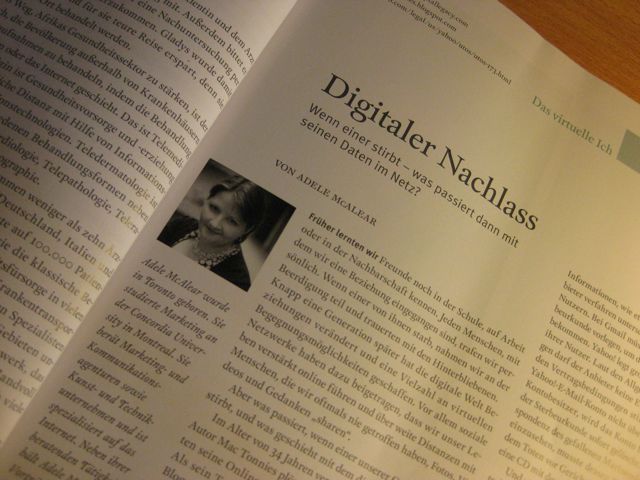 I’m very excited because I’ve just received my copy of Kulturaustausch in the mail and my article on Digital Legacy is in it! Does that make me a mainstream media writer now that my writing has been published in print?
I’m very excited because I’ve just received my copy of Kulturaustausch in the mail and my article on Digital Legacy is in it! Does that make me a mainstream media writer now that my writing has been published in print?
The magazine’s name in English is Cultural Exchange, while the theme of this issue is: e-volution: As we changed the digital world. The title of my article title translates to, “Digital Fading. When one dies – then what happens with his data on the net?” (Thanks Google Translate!)
Here’s more about the magazine:
“
KULTURAUSTAUSCH – journal for international perspectives” is a German-speaking quarterly presenting current issues in international cultural relations from unusual angles. Authors from all over the world like Kofi Annan, Noam Chomsky, Francis Fukuyama or Amartya Sen discuss the interdependencies between politics, culture and society. The journal is read by readers in 146 countries. Each issue has a thematic focus, looking at the growing importance of cultural processes in the globalised world. The journal is published by the Institute for Foreign Cultural Relations (ifa) with financial support by the Federal Foreign Office. A copy is available on request. For further information please visit www.ifa.de
Although I took a few years of German in high school but it’s pretty rusty now. Hopefully my article was translated accurately from English. I guess I’ll have to transcribe the German text and run it through Google Translate to find out.
Notifications and Data Keepers: Online Services Compared
 Online digital executor services, data safety deposit boxes, death notification services, your last words, password keepers – whatever you want to call them, a wide range of online services have popped up over the last two years to help you manage your digital accounts, files, notifications and memorials. Some are free while others carry a monthly or yearly fee to maintain. Some services are stripped down and may only have one function, others have a dizzying array of features.
Online digital executor services, data safety deposit boxes, death notification services, your last words, password keepers – whatever you want to call them, a wide range of online services have popped up over the last two years to help you manage your digital accounts, files, notifications and memorials. Some are free while others carry a monthly or yearly fee to maintain. Some services are stripped down and may only have one function, others have a dizzying array of features.
As consumers, there is no resource that looks at these new online services and their features objectively to help you choose the right one for your needs.
I plan to change that.
This summer, I will be creating on a questionnaire and will be inviting service providers to complete it. And, I’ll individually test and review the services of each participating company.
Preliminary examinations of service providers show theses basic feature sets:
- Notifications – often in the form of prearranged emails sent with final instructions for managing digital accounts and/or messages for loved ones.
- Passwords & Files – store passwords, text, photo, audio and video files online to be accessed by a designated individual(s) or yourself in case of emergency
- Memorials – create a living or posthumous online memorial or obituary
Emphasis on the feature sets varies, though security is a top concern of most services. Some companies even offer to change content on your social networks or delete accounts according to your instructions.
Your Biggest Questions
The top three questions raised when I mention online notification and data distribution services are:
- How is my death confirmed and verified?
- What happens to my data if the company ceases to operate?
- Are my wishes legally recognized?
Other answers I’ll be seeking from service providers:
- How many servers are used, where are they located, and what redundancy is in place for back ups?
- What is the security process, which encryption is used and where?
- How easy is the service to use?
- What are the file storage limits?
- Is there social network integration?
- Are there tools to help keep my account up-to-date easier?
- Can I export my account information?
What about you? Which questions would you like to see answered to help you decide which service is right for you?
If you are a service provider, I’d like to hear from you too.
Please leave me a comment below, Tweet me @Digital Legacy, or send me an email: Adele |at| DeathAndDigitalLegacy |dot| com .
Gray Questions Deceased Social Profiles
Silicon Valley tech blogger Louis Gray recently asked on his blog: Should Social Profiles Live on When People Die?
He’s questioning why it’s not easier to report that a Facebook user has passed away. Louis must have missed that day last October when Facebook blogged about the ability to memorialize accounts. I don’t blame him – it was easy to miss. Although Facebook had this feature in place and working long before this announcement (my sources say it came about after the Virinia Tech shootings in April 2007) they haven’t gone out of their way to promote it.
I have heard many complaints from people who’ve encountered exactly the scenario that Louis recounts, and likely you have too: the features that Facebook uses to encourage activity among its members will include deceased friends. Whether you’re asked to “reconnect with” someone by writing on their wall, to help them “find new friends”, or to “keep in touch” by sending them a message, these prompts can be a distressing and emotional reminder of the death of a friend. These feelings are worsened because the automated reminders are tinged with guilt by putting the onus on the reader to do more, when clearly, there’s nothing more to be done.
When a Facebook account is memorialized, the deceased friend’s profile is no longer included in these prompts.
Louis Gray goes on to say:
Either way, the way we just leave things hanging in a position of suspended animation doesn’t work for me. If social networks are to celebrate births, celebrate life’s milestones and mark bad news as well, they should be ready for the final passage to whatever’s next.
It’s great that more people from the valley are starting to write about and question this incongruous aspect of social networks. It is a central part of how I feel about the state of online services policies (or lack thereof) and I felt compelled to comment on the post:
Actually, Facebook is one of the few social networks to have some semblance of a policy. Most other networks have no policy on death, though they might on “inactive” accounts. Email accounts have better policies around accessing a loved one’s data, but they’ll never hand over control of the account to the family.
I’ve been researching and speaking on this topic for 18 months. There is a disconnect between online services’ policies and the realities of life. Building online businesses is about using your resources toward growth and acquisition of new users to drive revenue. Having resources dedicated to termination of accounts and verification of a person’s alive/deceased status is not a top priority because it doesn’t produce revenue.
And let’s face it, most online services, especially free ones, are not known for providing individualized customer service. They just don’t have the staff. (Facebook has almost 500 million users and just 500 staff.)
Thanks for writing on this important issue. I’m glad to see more people giving it some thought. If you’re interested in knowing more, you can check out my blog on the topic: http://DeathAndDigitalLegacy.com
How about you? Have you encountered a situation on Facebook, or elsewhere, that was inconsiderate about whether a friend was alive or deceased? How did it make you feel and did you do anything about it?
The Man Who Coined Digital Executor
About 18 months ago, just as I was making it known that I was researching digital legacy issues, several friends told me about Derek K. Miller and that I needed to have a conversation with him. Well today, that finally happened.
Derek lives in Vancouver, British Columbia and is as close to a digital native as a (soon-to-be) 40-year-old could possibly be. He told me stories of dialing into mainframes in the ‘83, and of being active on BBS and other early web-sharing activities. Derek has had a web site for more than 20 years and has been blogging for 10 years. He’s also a writer, editor, musician, photographer, podcaster, husband, father and tech guy. And he’s fighting stage 4 metastatic colorectal cancer, which is one reason why he has given much thought and consideration to the idea of digital legacy over the last few years.
To best estimates, Derek is the first person on record to use the term “digital executor.”
Spark
Way back on April 30, 2008, Derek appeared on a CBC radio show called “Spark” hosted by Nora Young. (Listen to the 20 minute interview.) On it, he talked about having such a vast amount of content online and the need for people to have a digital executor to carry out your wishes after you’ve passed away. Back then, he discussed many of the same concepts and concerns that I’ve been exploring.
I read in the Spark blog comments that host Nora Young stated,
I can imagine a whole new category of ‘personal digital archivists’.
The timing of this comment is particularly interesting because it was in spring and summer 2008 that Bob Stewart founded VitalLock and Jeremy Toeman came up with the idea for Legacy Locker.
It is also at that same time that I had a seminal discussion about this topic with a group of developers and techno-early-adopters about what happens to your online communities and digital footprint when you die. It was that discussion that inspired me to dig deeper, and which has led me to research, write and speak about digital legacy issues.
Fast forward two years, and after my presentation at webcom, a discussion sprang up on Twitter and Derek’s name was raised as being the person who coined the term “digital executor.” Within a short time, Derek and I had made arrangements to have Skype chat and it was a thrill to finally speak with him today . (I promise to blog more about that chat another time but you can read about some of it in Derek’s post.)
Dave or Derek?
Derek echoed what he had said 2 years previous, that Dave Winer (the creator of RSS and pioneer in blogging and CMS technology) was early out of the gate writing about the longevity of his digital content in March of 2007, one whole year before the Spark interview.
I realized that if I were to die now, my web presence might last a month or two, but probably not much longer. … If I want these things to last, I realized, I would have to invest to future-proof the content, as best as I can.
Despite Dave Winer’s advanced thinking on the preservation of content, he did not once use the term”digital executor.” So, unless someone can prove to me otherwise, I’m going to credit Derek K. Miller with being the first to use the term “digital executor.”
What a privilege it was to get Derek’s perspective on digital legacy issues. I look forward to our next conversation.




